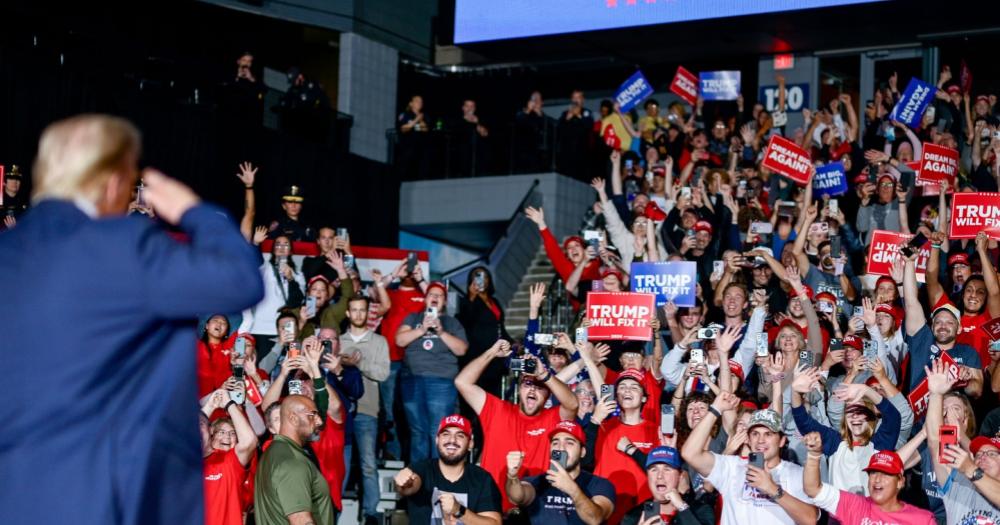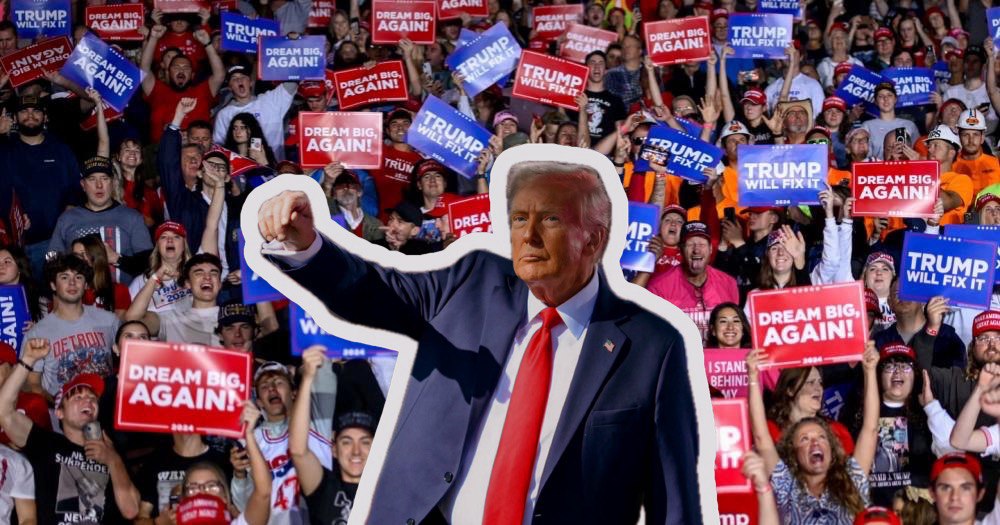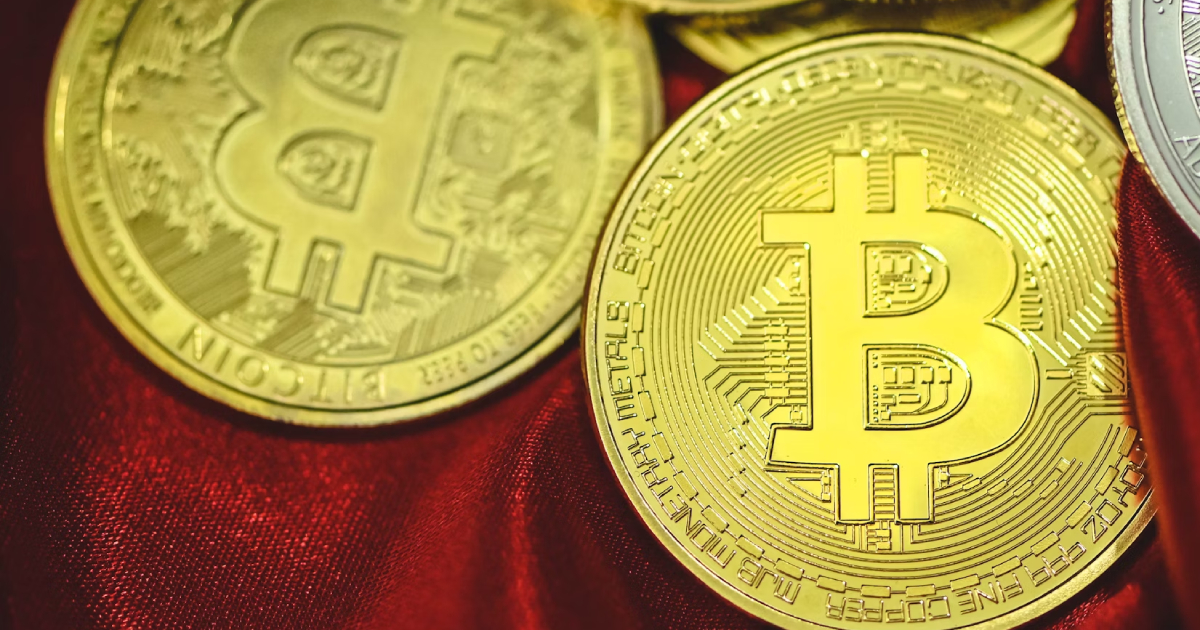ADVERTISEMENT
Comment: Lina Khan, the whale & the SEA, or how US consumer policy affects S'poreans
Lina Khan is reminder that the U.S.'s role in Singaporean lives extends beyond geopolitics.
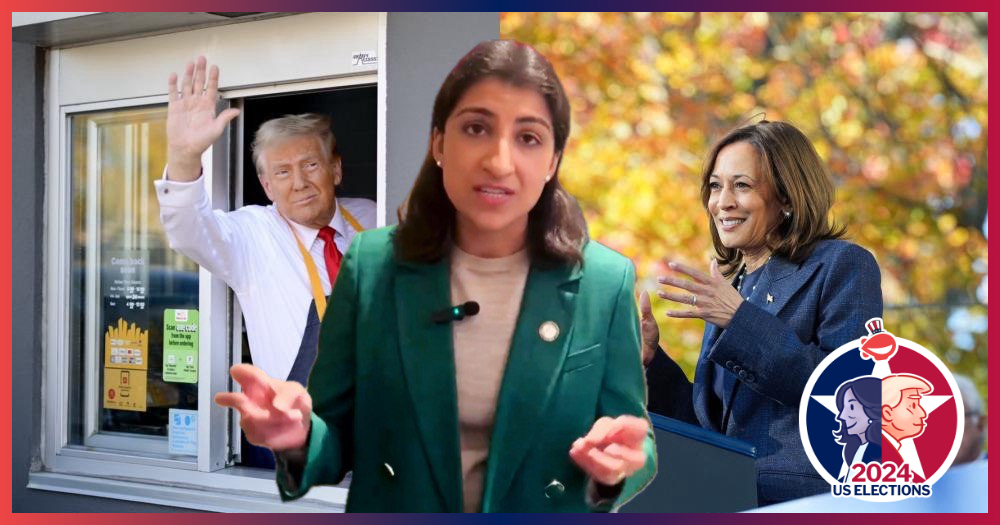
Singaporeans and its thinkers have had a lot to say about the potential impact of the United States’ presidential election on Southeast Asia and Singapore.
Whether it's former ambassadors like Bilahari Kausiakan or business leaders, or even former prime minister Lee Hsien Loong very pointedly declining to offer a prediction on the matter, the country and region are not short of opinions.
However, most of these opinions centre around geopolitical analysis and trade, and rightly so.
These are the most direct and obvious ways that Singapore will be affected by the contest between Republican Donald Trump and Democrat Kamala Harris.
However, the election could become even more meaningful to Singaporean lives on a day-to-day basis, due to the U.S.’s outsize influence on how commerce and culture is conducted.
One example is best shown by the current chair of the Federal Trade Commission (FTC): Lina Khan.
KHAAAAN (It’s a Star Trek reference)
The 35-year-old Khan has spent her career crusading against large corporate interests as an antitrust advocate and was appointed by Democratic incumbent Joe Biden when he first came into office.
Detractors have characterised her as alternately stifling innovation, overreach, or tilting at windmills; while her advocates tout her as a pro-consumer regulator, bringing common sense back to U.S. commerce.
Khan’s FTC has had mixed results, being beaten back in the U.S. courts on numerous occasions.
But if you look at the list of actions she’s tried to undertake, such as banning noncompete clauses (partly failed), blocking large mergers for fear of creating monopolies (mixed results), and even trying to ban practices which affect consumers (some wins), Khan’s FTC is trying hard to reshape the way corporations in the U.S. work.
An interesting fact is that legendary talk show host Jon Stewart lost his show on Apple TV after he tried to get an interview with her.
The entire 20-minute-long conversation he eventually had with her on The Daily Show is well worth listening to.
But recently there has been one thing she’s done that touches on something almost everybody has encountered and has asked ourselves, “How is this legal?”
Yup, it's subscriptions.
Click-to-cancel culture
If you’ve ever signed up for anything, a streaming service, a magazine subscription, or a gym membership, and found it ten times easier to sign up than to quit, you know what her latest attempt at regulation is about.
“Click-to-cancel” is a new U.S. rule that essentially means companies have to make it as easy to quit a service as it is to join it.
It means that an American gym can’t allow you to sign up online and then force you to show up in person and go ten rounds with their local representative in order to quit.
It means that online subscriptions won’t have pages you need to navigate through asking if you’re sure and if you’d rather pause your subscription, commonly referred to as "dark patterns" as explained by Vox.
Companies must make it as easy to quit a service as it is to join it.
There is a chance that some of these companies, with a global footprint, will choose to develop systems that only apply to the U.S. rather than change everything everywhere, all at once.
However, it is also known that Singapore prides itself on aligning its regulations with the best international practices.
This means that the U.S. enacting click-to-cancel will be a major consideration for Singapore’s policymakers on whether it’ll do the same.
Right and left to repair
Khan, and what she represents, quietly became an election issue.
Amongst the rank-and-file, there is much support for her policies, if not Khan herself, because of what noted commentator Cory Doctorow has described as an “anti-monopolist” wave.
Even Trump's vice-president candidate JD Vance has praised Khan, saying in February before he was nominated as Trump's vice presidential candidate that Khan was "doing a pretty good job", as quoted by The Hill.
There are concerns that companies, particularly large tech companies, have accrued too much power, and need serious regulation, if not breaking up.
Whether it’s things like there is effectively only one viable search engine, or one video editing software platform, to even whether your local McDonalds can repair their own ice cream machine.
Some of these concerns are very U.S.-centric, but many of the principles at stake are impactful globally.
The ice cream machine story starts as a lark about why you can’t get ice cream at many American McDonald's locations and ends up being about a repair monopoly aimed at preventing machine owners from servicing their own equipment.
Mother Jones quoted Trump as promising to fix ice cream machines, but Khan actually did it.
If you’ve ever dropped your phone and thought “Now I need a new one” instead of “I can just repair that”, you’ve been affected by the same issue.
Rumble in the Bronx
But those corporate interests have taken issue with Khan, with billionaire backers of Trump such as Elon Musk calling for her to be fired.
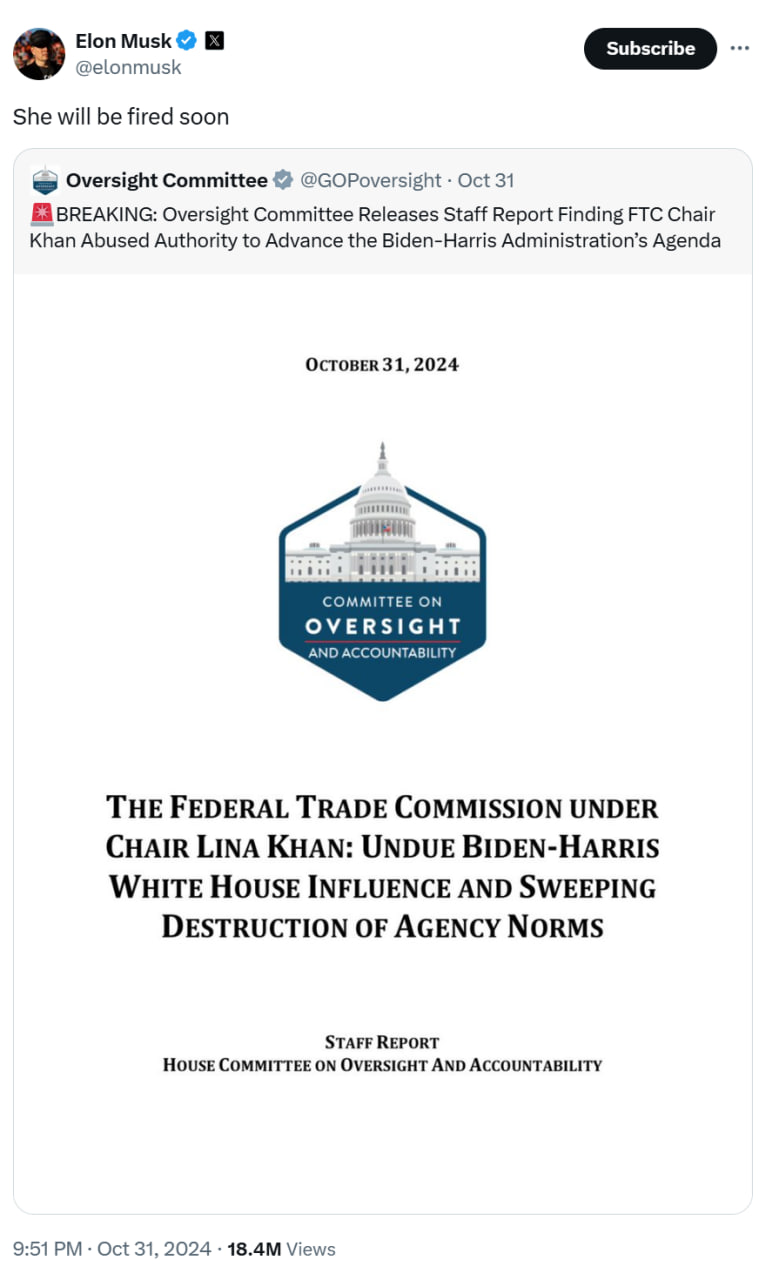 This picture is an example of dark patterns. Screenshot via X
This picture is an example of dark patterns. Screenshot via X
Some Harris backers are not fans of hers either, with another billionaire, Shark Tank star, and Harris surrogate Mark Cuban implying that he believed she should be removed, although he claimed he was misunderstood.
This has been met with fierce resistance from those who back both Harris and Khan, such as the left-leaning Alexandra Ocasio-Cortez, who threatened “a brawl” if Khan was “touched”.
Let me make this clear, since billionaires have been trying to play footsie with the ticket:
Anyone goes near Lina Khan and there will be an out and out brawl. And that is a promise.
She proves this admin fights for working people. It would be terrible leadership to remove her. https://t.co/ba3nUY35Cg
— Alexandria Ocasio-Cortez (@AOC) October 9, 2024
Harris herself has not commented on Khan, but it seems a safe assumption that the only way Khan continues in her role is under a Harris administration, if only because she’s a Democratic appointee.
Should Trump win, Khan will likely be replaced, but the impact of the FTC's actions, or lack thereof, will still be felt in Singapore, and the world.
Muscles in Brussels
All this is part of an American version of the “Brussels Effect”, where a regulatory force is so powerful, that it can shape regulation across the world.
One of the reasons why your new iPhone 16 changed charging wire types from lightning to USB-C is partly because the European Union, headquartered in Brussels and hence the name, required companies to adopt USB-C as a standard.
You may have also seen in the past decade the rise of the “Green Tick” energy efficiency label in Singapore.
Singapore’s government likely would have always enacted some version of the label regardless of what other countries did, but the motivation for large appliance makers to provide efficient items is not to fulfil a Singaporean market requirement.
In 2009, then U.S. President Barack Obama instituted a push to make appliances more efficient, arguably one of his more successful policies.
It allowed his administration to make progress on climate goals, while showing real benefits to consumers in the form of lower power bills.
Singapore has likely benefitted from the change of approach this instilled in large goods manufacturers, and while those companies could have ended up making more efficient products by themselves, Obama’s policies made certain of it.
These policies were rolled back by the first Trump administration, and the impact of that has yet to be fully realised, but it does go to show how the waxing and waning of American policy interest may show up in the wallets of Singaporeans.
Related stories
Top image via Donald Trump/Facebook, Kamala Harris/Facebook, & FTC/X
ADVERTISEMENT
ADVERTISEMENT
MORE STORIES










